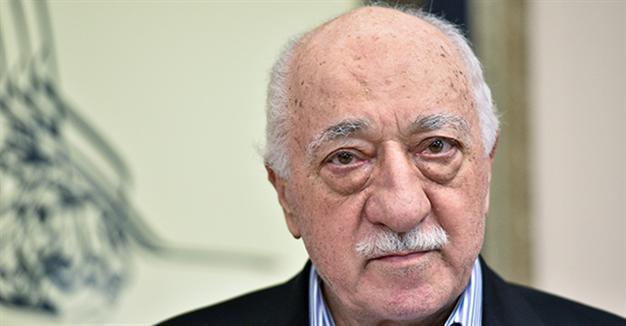Turkey’s OK of convention four days before coup attempt is bad news for Gülen
Murat Yetkin

REUTERS photo
The Turkish government’s approval of a European convention just four days before the failed bloody military coup attempt of July 15 could mean more bad news for those involved in the attempt and seeking political asylum in the EU or the United States. That might even include Fethullah Gülen himself, the Islamist preacher living in the U.S. and accused by the government of masterminding the coup.The documents in question include protocols signed on July 11 by Turkey’s ambassador to the Council of Europe in Strasbourg, Erdoğan İşcan, which make Turkey a full partner to the 1957 European Convention on Extradition. While listing the exceptions of granting political asylum to individuals from other countries, the convention says “the taking or attempted taking of the life of a head of state, or a member of his family, shall not be deemed a political offence for the purposes of this convention.”
The sentence was copied and pasted to the Treaty on Extradition and Mutual Assistance in Criminal Matters between the U.S. and Turkey, which was signed in 1979 and entered into force on Jan. 1, 1981.
With the approval of the European Convention, the clause - known in international criminal law as the “Belgian Clause” - has become applicable for the Turkish government both in the U.S. and Europe. A number of soldiers allegedly involved in the coup attempt, which included the kidnapping or even possible killing of President Tayyip Erdoğan and Prime Minister Binali Yıldırım, have already fled abroad. Not only soldiers but a number of allegedly pro-Gülen civilians have also fled - mainly to the U.S. and EU member countries, some of them asking for asylum.
Rıza Türmen, a former judge of the European Court of Human Rights (ECHR) and a former deputy in the Turkish Parliament, told the Hürriyet Daily News that the article could be applicable to anyone, including Gülen himself, if he is proven to have been involved in the coup attempt, providing that “evidence showing the link is presented.”
Justice Minister Bekir Bozdağ says 85 boxes of evidence have been given to the U.S. authorities about the activities of Gülen to overthrow the government. Both Ankara and the indictments against Gülen denounce him as the leader of the “Fetullahist Terror Organization (FETÖ).”
President Tayyip Erdoğan says the documents already sent to the U.S. would be enough for extradition and Washington has to make a choice between a “terrorist leader” and long-time U.S. ally Turkey.
U.S. officials say that without solid evidence, Gülen cannot be handed to Turkey for a trial. A U.S. Justice Department delegation is expected to carry out talks in Ankara on the issue next week.
The “Belgian Clause” refers to a treaty between France and Belgium in 1834 following a dispute over an individual who had committed an attack one year before requesting asylum from Belgium. Belgium then issued a law saying something very similar to the 1957 European Convention, which over time became “jus cogens,” or a “peremptory norm,” in international law.











